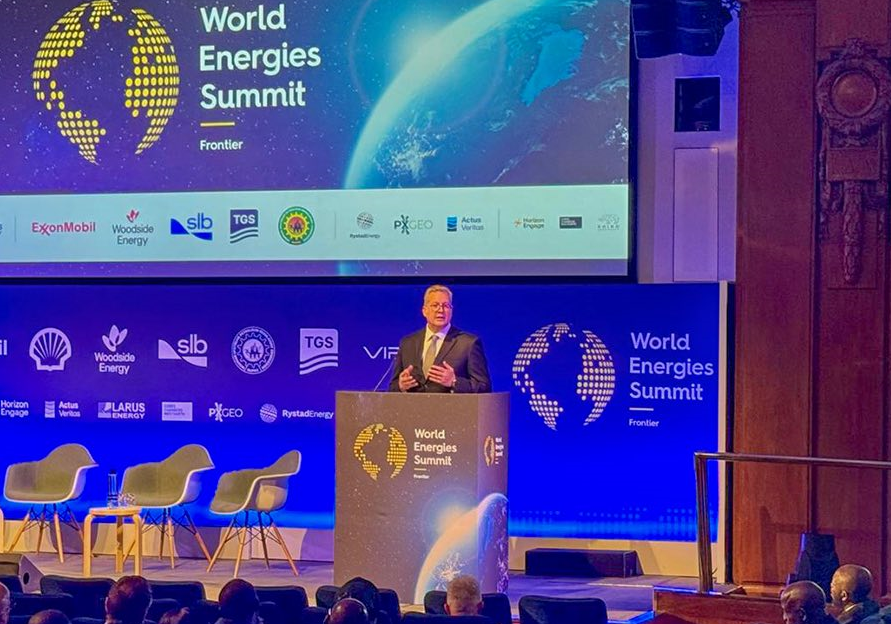Egypt plans to drill 480 new oil and gas exploration wells over the next five years, with total investments exceeding $5.7 billion, announced Karim Badawi, Minister of Petroleum and Mineral Resources, during his keynote speech at the World Energies Summit held in London.
He explained that 101 wells are scheduled to be drilled in 2026 alone, distributed across Egypt’s main petroleum regions: 67 wells in the Western Desert, 14 in the Mediterranean, 9 in the Gulf of Suez, and 6 in the Nile Delta.
Badawi highlighted that newly introduced incentives during the past year have supported the expansion of exploration and production activities, noting that 21 new agreements were signed with international companies with total investments of $1.1 billion. In addition, 300 new wells have been brought into production. This reversed the trend of decline in natural gas production in August 2025 for the first time in years.
Egypt’s demand for natural gas from different sectors increased by 14% in 2025, Badawi revealed during a press conference in May. He added that natural gas production fell by 25% during the last two years.
To bridge the demand-supply gap, the ministry significantly expanded its operations since July 2024 from exploration and production activities to developing its mature fields as well as leasing four floating storage and regasification units at Ain Sokhna and Damietta ports to secure energy, industrial and local demands.
In addition to Eni’s plans to invest $8 billion in Egypt through 5 years, bp will allocate $5 billion for new exploration activities,Badawi told attendees of the London Summit. Furthermore, four new exploration agreements valued at over $340 million were signed with Eni, Shell, and Arcius Energy.
Badawi underscored the role of the Egypt Upstream Gateway (EUG) digital platform in accelerating investment decisions and facilitating investor access to comprehensive digital data, replacing traditional procedures. He also referred to new seismic survey projects using the latest technologies. These include a major project by the Egyptian Natural Gas Holding Company (EGAS) in the Eastern Mediterranean in cooperation with the Schlumberger–Veridien alliance. Additional seismic projects are also underway in the Western Desert and the Gulf of Suez to provide needed data for investors.
The minister affirmed that Egypt continues to strengthen its position as a regional energy hub, supported by its location, infrastructure, and refining capacity, one of the biggest in Africa. Egypt also operates two LNG export terminals in Idku and Damietta, major pipelines including SUMED and the Arab Gas Pipeline, and benefits from its pivotal Suez Canal route.
Badawi further emphasized plans to expand petrochemical production, targeting exports worth $4.2 billion by 2030, compared to $2.4 billion in 2025.
Egypt has finalized a comprehensive National Petrochemicals Plan that will guide the sector’s development through 2040, with a focus on localization, industrial diversification, export growth, and reducing import costs.
Currently, ten petrochemical projects are under development, expected to add seven million tons of annual production capacity and introduce 20 new industrial products to the local market, products that were previously imported. This expansion could save Egyptian economy an estimated $8 billion in imports.
Among the key projects are the $7 billion Alamein Petrochemicals Complex, focusing on derivatives for automotive, construction, and packaging industries; the Ethylene and Polyethylene Complex in Alexandria, one of Africa’s largest; and the Soda Ash Project in New Alamein, which will eliminate Egypt’s dependence on imported soda ash by 450,000 tons annually.




